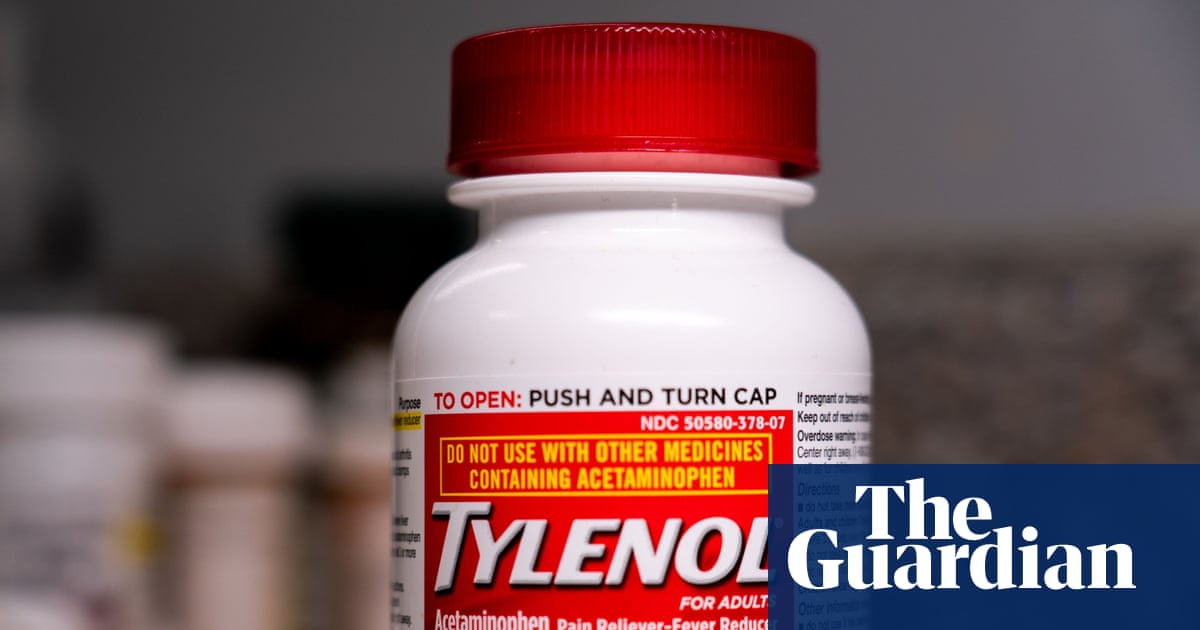Trump Links Tylenol Use During Pregnancy to Autism, Sparks Controversy
In a recent announcement, former US President Donald Trump made an unproven link between the use of Tylenol (acetaminophen) during pregnancy and an increased risk of autism. This claim has been met with strong pushback from medical experts and health organizations, who emphasize the lack of scientific evidence supporting such a connection. The announcement occurred alongside Health Secretary Robert F. Kennedy Jr. who is reported to have said that the Food and Drug Administration (FDA) will be issuing a notice to physicians about the potential risk of taking Tylenol during pregnancy.
Medical Experts Disagree with Trump's Claims
Leading medical professionals and organizations have voiced serious concerns regarding Trump's statements. Dr. Steven Fleischman, president of the American College of Obstetricians and Gynecologists (ACOG), stated that the claim is "not backed by the full body of scientific evidence and dangerously simplifies the many and complex causes of neurologic challenges in children." ACOG has consistently identified Tylenol as one of the safest pain relievers for pregnant women, citing a lack of clear evidence proving a direct relationship between prudent acetaminophen use during pregnancy and fetal developmental issues.
Tylenol Manufacturer Responds
Kenvue, the maker of Tylenol, issued a statement to the BBC refuting any causal link between acetaminophen and autism. "We strongly disagree with any suggestion otherwise and are deeply concerned with the health risk this poses for expecting mothers," the statement read. Kenvue emphasized that acetaminophen remains the safest pain relief option for pregnant women, offering an alternative to riskier medications or enduring conditions like fever.
FDA Action and Proposed Autism Treatment
Robert F. Kennedy Jr. stated that the FDA will issue a physician's notice regarding the potential risks of Tylenol use during pregnancy and will begin the process of initiating a safety label change and public health campaign. Additionally, Kennedy announced that the FDA will soon approve leucovorin, a drug traditionally used to protect cancer patients against chemotherapy toxicity, as a treatment for children with autism.
The Science Behind Leucovorin and Autism
FDA Commissioner Marty Makary stated that the approval of leucovorin would be based on research suggesting the drug may help children with autism who are deficient in folate (a form of vitamin B) improve their verbal communication. The Autism Science Foundation notes that some studies have linked low folate levels during early pregnancy to an increased risk of autism, but findings remain inconsistent. Leucovorin, also known as folinic acid, may more easily cross the blood-brain barrier compared to regular folic acid, potentially addressing a folate deficiency. However, researchers emphasize that the science is still in its early stages and more work is needed.
Complexities of Autism Research
Trump called the rise in reported autism cases a "horrible crisis," but experts caution that finding the causes of autism is a complex and ongoing effort. The widely held view among researchers is that autism is likely the result of a complex mix of genetic and environmental factors, rather than a single cause. The CDC reports a dramatic increase in autism diagnoses, from 1 in 150 U.S. children in 2000 to 1 in 31 in 2022, though some believe this reflects better identification and changing diagnostic criteria.
Current Medical Recommendations
Despite Trump's claims, major medical groups continue to deem acetaminophen safe for pain relief in pregnancy when used prudently. The American College of Obstetrics and Gynecology released a consensus statement in 2021 asserting, "Studies that have been conducted in the past show no clear evidence that proves a direct relationship between the prudent use of acetaminophen during any trimester and fetal developmental issues." They emphasized that neurodevelopmental disorders are multifactorial and difficult to associate with a singular cause.
 Visit the website
Visit the website







